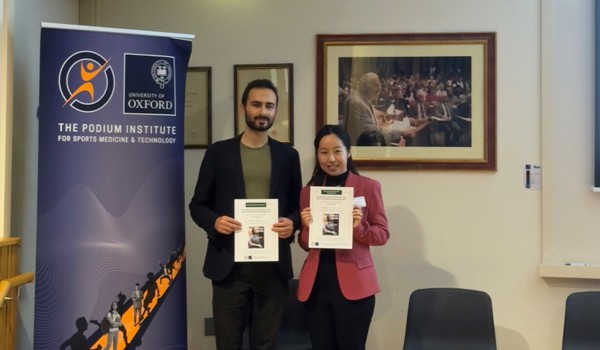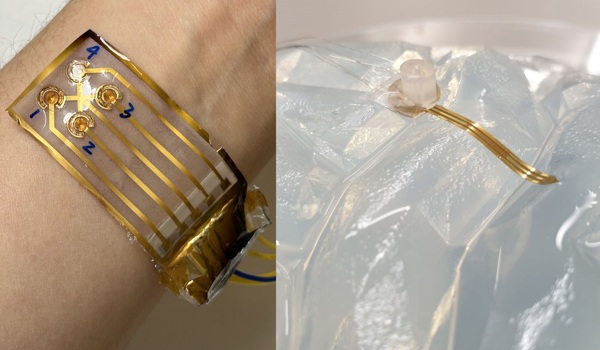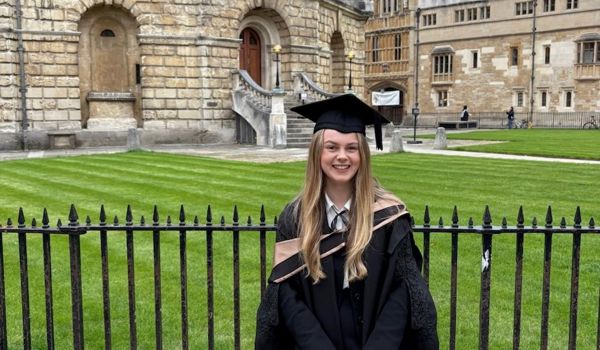Biography
Stephen was awarded his DPhil (PhD) by the University of Oxford in 2001. Following a period as a post-doctoral researcher, he was then a Departmental Lecturer (2003), University Lecturer (2006), Associate Professor (2015), and Full Professor (2018) at the University of Oxford. From 1st August 2021, he has been a Full Professor at the Institute of Applied Mechanics, National Taiwan University. He has been awarded a Yushan Scholarship for 2021-24 and is a Visiting Professor at the University of Oxford.
He has published >100 journal papers and 3 books (see Google Scholar for details) and supervised 24 PhD students to successful completion. He has chaired a number of international conferences, as well as organising the UK Royal Society meeting on ‘Integrated Control of Cerebral Blood Flow’ in 2018.
Most Recent Publications
Microbubble-laden aerosols improve post-nasal aerosol penetration efficiency in a preterm neonate model
Microbubble-laden aerosols improve post-nasal aerosol penetration efficiency in a preterm neonate model
Modelling drug delivery to the small airways: optimization using response surface methodology
Modelling drug delivery to the small airways: optimization using response surface methodology
Computational modelling of cerebral oedema and osmotherapy following ischaemic stroke.
Computational modelling of cerebral oedema and osmotherapy following ischaemic stroke.
Simulation-based optimisation to quantify heterogeneity of specific ventilation and perfusion in the lung by the Inspired Sinewave Test
Simulation-based optimisation to quantify heterogeneity of specific ventilation and perfusion in the lung by the Inspired Sinewave Test
Welcome from the new Editor-in-Chief.
Welcome from the new Editor-in-Chief.
Research Interests
Stephen's research interests lie in biomedical engineering, in particular cerebral blood flow and metabolism. He is interested in modelling how blood flow and metabolism are coupled and how blood flow is controlled. This is a highly interdisciplinary field, so he works with a wide range of collaborators around the world, both modelling and experimental groups.
Stephen's current research topics involve modelling the interaction between microthrombi and the microvasculature, understanding the physiological nature of autoregulation and exploring how whole brain models of cerebral blood flow can be constructed.
Research Groups
Current Projects
INSIST - Modelling thrombectomy in stroke
Other Roles
Stephen is also Chair of the Cerebral Autoregulation Research Network
Most Recent Publications
Microbubble-laden aerosols improve post-nasal aerosol penetration efficiency in a preterm neonate model
Microbubble-laden aerosols improve post-nasal aerosol penetration efficiency in a preterm neonate model
Modelling drug delivery to the small airways: optimization using response surface methodology
Modelling drug delivery to the small airways: optimization using response surface methodology
Computational modelling of cerebral oedema and osmotherapy following ischaemic stroke.
Computational modelling of cerebral oedema and osmotherapy following ischaemic stroke.
Simulation-based optimisation to quantify heterogeneity of specific ventilation and perfusion in the lung by the Inspired Sinewave Test
Simulation-based optimisation to quantify heterogeneity of specific ventilation and perfusion in the lung by the Inspired Sinewave Test
Welcome from the new Editor-in-Chief.
Welcome from the new Editor-in-Chief.
Books
Payne, S.J. Cerebral Blood Flow and Metabolism. World Scientific, 2017.
Payne, S.J. Cerebral Autoregulation. Springer, 2016.
Chappell, M.A. and Payne, S.J. Physiology for Engineers. Springer, 2016.
Most Recent Publications
Microbubble-laden aerosols improve post-nasal aerosol penetration efficiency in a preterm neonate model
Microbubble-laden aerosols improve post-nasal aerosol penetration efficiency in a preterm neonate model
Modelling drug delivery to the small airways: optimization using response surface methodology
Modelling drug delivery to the small airways: optimization using response surface methodology
Computational modelling of cerebral oedema and osmotherapy following ischaemic stroke.
Computational modelling of cerebral oedema and osmotherapy following ischaemic stroke.
Simulation-based optimisation to quantify heterogeneity of specific ventilation and perfusion in the lung by the Inspired Sinewave Test
Simulation-based optimisation to quantify heterogeneity of specific ventilation and perfusion in the lung by the Inspired Sinewave Test
Welcome from the new Editor-in-Chief.
Welcome from the new Editor-in-Chief.
DPhil Opportunities
I aim to take 2-3 DPhil students each year. Projects will be in the broad area of cerebral blood flow and metabolism.
Most Recent Publications
Microbubble-laden aerosols improve post-nasal aerosol penetration efficiency in a preterm neonate model
Microbubble-laden aerosols improve post-nasal aerosol penetration efficiency in a preterm neonate model
Modelling drug delivery to the small airways: optimization using response surface methodology
Modelling drug delivery to the small airways: optimization using response surface methodology
Computational modelling of cerebral oedema and osmotherapy following ischaemic stroke.
Computational modelling of cerebral oedema and osmotherapy following ischaemic stroke.
Simulation-based optimisation to quantify heterogeneity of specific ventilation and perfusion in the lung by the Inspired Sinewave Test
Simulation-based optimisation to quantify heterogeneity of specific ventilation and perfusion in the lung by the Inspired Sinewave Test
Welcome from the new Editor-in-Chief.
Welcome from the new Editor-in-Chief.





